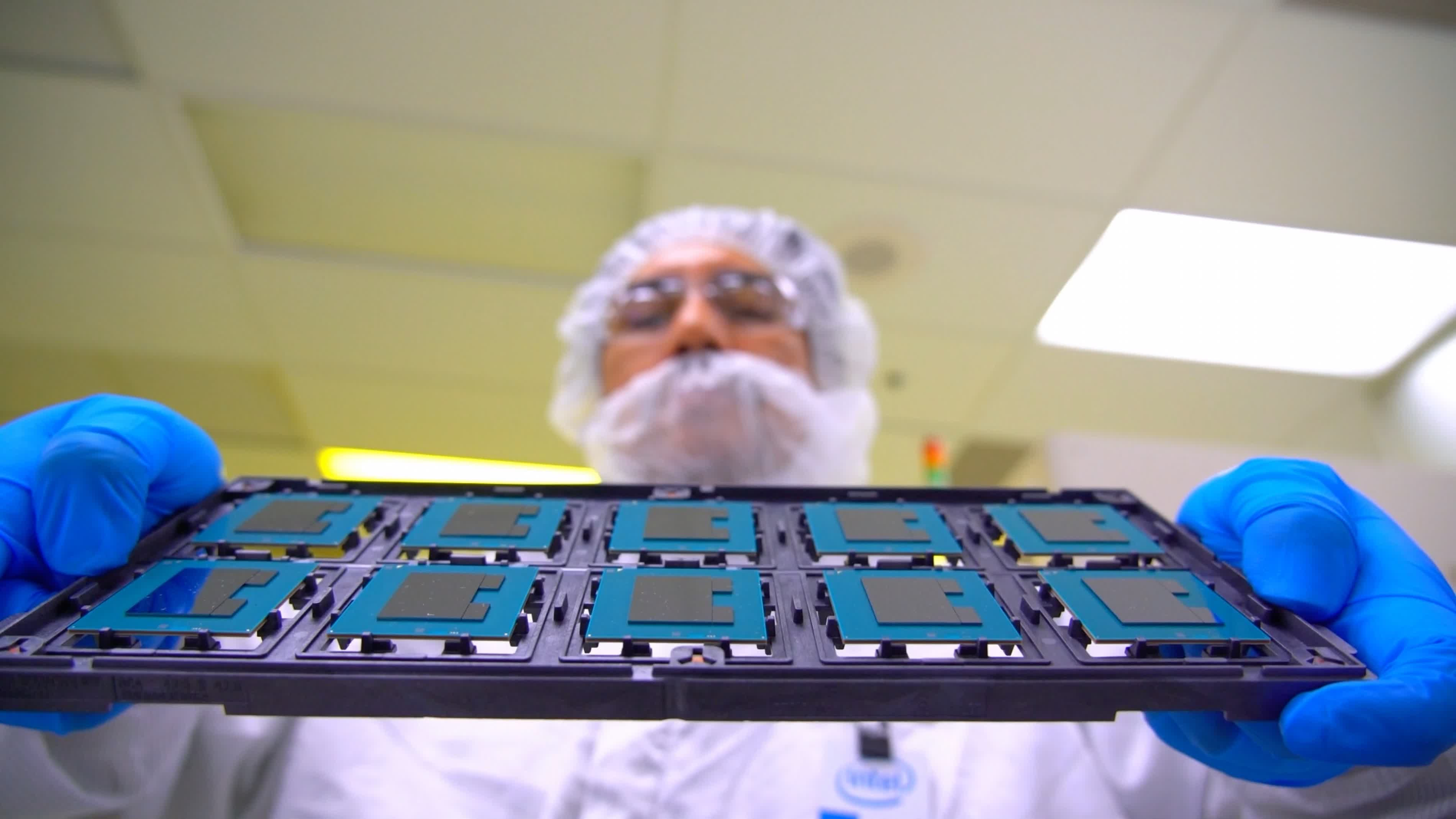The big picture: Intel has been trying to build a more resilient supply chain for its chip manufacturing efforts, but the company won't be able to do so in China. The trade war between China and the US is forcing the chipmaker to take the hard route when it comes to producing more silicon wafers, which means the ongoing chip shortage will persist until at least 2023.
Intel is currently working to expand its manufacturing capacity as part of its IDM 2.0 initiative. The company plans to become a strong competitor to chipmakers like TSMC and Samsung, and even wants to become the leader of process and packaging technology by 2025. Both are very ambitious goals that will require a lot of engineering talent and financial investments, but global politics could create some serious roadblocks along the way.
According to a Bloomberg report, Intel has been trying to speed up chip manufacturing in China as a way to address the ongoing chip shortage. However, the White House is said to have "strongly discouraged" these plans, as they interfere with President Biden's security policy and domestic production efforts.

The company wanted to manufacture silicon wafers at a facility in Chengdu, China, that could have become operational by the end of 2022. When the Biden Administration expressed worries about potential security issues, Intel agreed to put those plans on hold and focus on finding alternative solutions.
Intel depends on government subsidies and tax incentives to build its US manufacturing plants, so it has to appease regulators when it comes to choices like this. As an alternative, the company is evaluating the possibility of building similar facilities in the US and Europe.
This might prolong the chip shortage and hurt Intel's production goals in the short term, but the company seems willing to make those compromises and align with the Biden Administration's goal of manufacturing essential components in the US.
